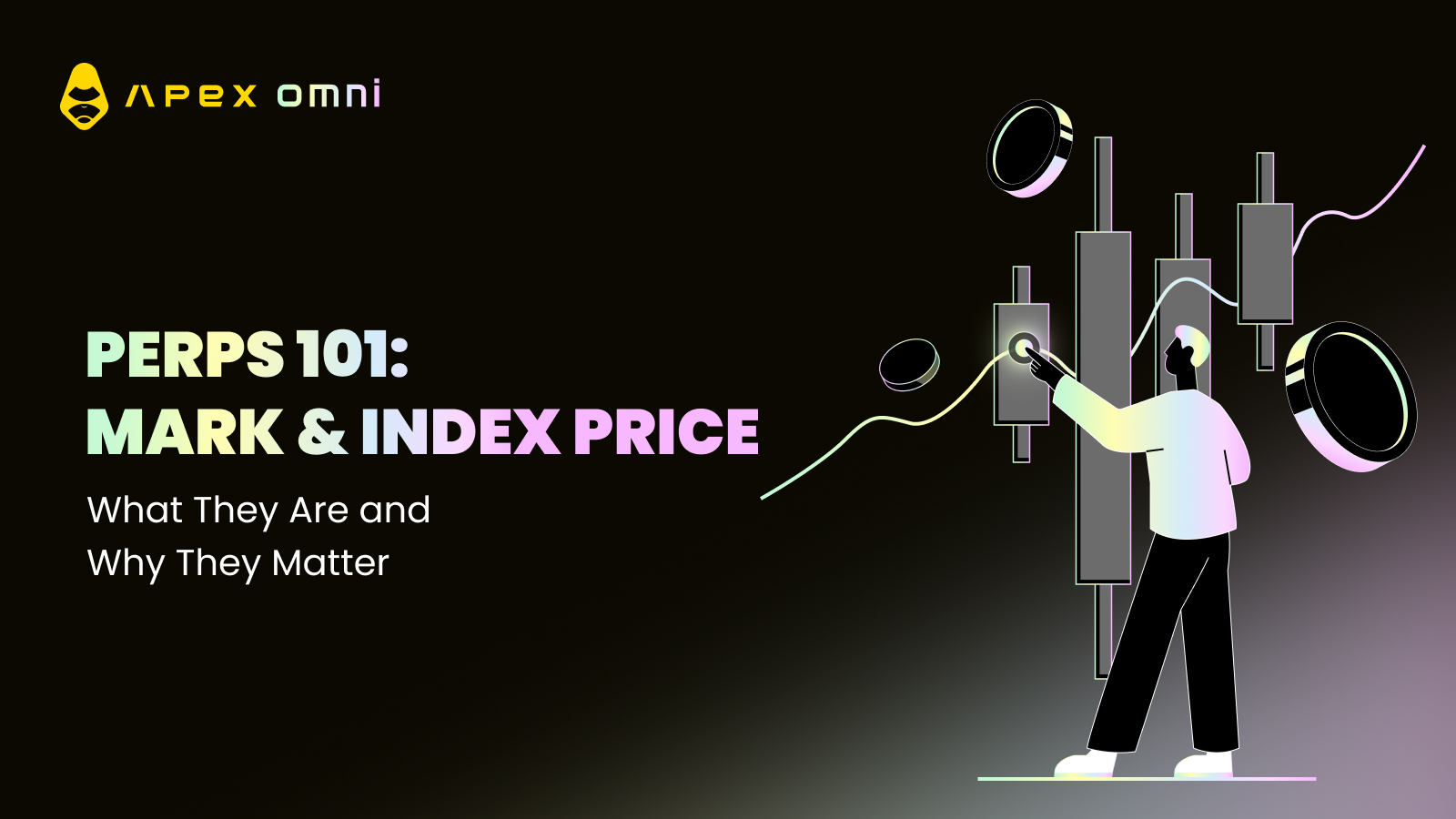When trading crypto perpetual futures, two terms you'll often see are mark price and index price. These aren't just technical details — they play a key role in how your trades are valued and when liquidations occur.
In this article, we'll explain the difference between mark price vs index price, why both matter, and how understanding them can help you trade smarter.
What Is Index Price?
The index price is the reference price for a perpetual futures contract. It's calculated based on the average spot prices of an asset across multiple major exchanges.
For example:
The BTC index price might take the weighted average from exchanges like Binance, Coinbase, and Kraken.
This helps prevent manipulation from one exchange influencing the contract price too heavily.
👉 In short: The index price reflects the “real-world” market value of the asset.
What Is Mark Price in Crypto?
The mark price is the price used to determine unrealized PnL (profit and loss) and trigger liquidations.
Unlike the last traded price (which can be volatile), the mark price is designed to be fair and stable, reducing the chances of unfair liquidations caused by sudden market spikes.
The formula usually combines:
Index Price – the baseline fair value.
Funding Basis – adjustment based on the current funding rate in the perpetual contract.
👉 In short: The mark price is the fair value used by the exchange to protect traders from unnecessary liquidations.
Mark Price vs Index Price: Key Differences
Feature | Mark Price | Index Price |
Definition | Used for PnL calculation & liquidation | Average spot price from multiple exchanges |
Purpose | Prevents unfair liquidation, ensures fair PnL | Anchors contract price to real market value |
Calculation | Index Price + funding adjustments | Weighted average of spot prices |
Volatility | Less volatile than last price | Moves with actual spot market |
Think of it this way:
Index price = “What the market says this asset is worth right now.”
Mark price = “The fair value the system uses to decide if you're liquidated.”
Why Do Mark and Index Price Matter?
Fair Liquidations
Without mark price, a sudden price wick on one exchange could wipe out positions unfairly.
Accurate PnL
Your unrealized gains/losses are calculated from the mark price, not the last traded price.
Market Stability
Using both prices helps keep perpetual contracts aligned with spot markets while protecting traders from manipulation.
Example: BTC Perpetual Futures
BTC Index Price: $60,000 (calculated from spot averages).
Funding adjustment: +$20.
BTC Mark Price: $60,020.
If Bitcoin's last traded price suddenly dips to $59,500 on one exchange, you won't instantly get liquidated — because liquidation is based on the mark price, not the volatile last trade.
Final Thoughts
In perpetual futures, understanding mark price vs index price is essential.
The index price anchors the contract to real-world spot markets.
The mark price ensures fair liquidations and accurate PnL.
Together, they keep perpetual trading fair, balanced, and resistant to manipulation.
So next time you open a crypto perpetual position, make sure you know where to check both the index price and the mark price — they could be the difference between a safe trade and an unexpected liquidation.
Kick Off Trading on ApeX Omni
ApeX Omni puts the world of decentralized trading at your fingertips — from crypto perpetuals and spot markets to U.S. stocks, prediction markets, and beyond. With deep liquidity, advanced tools, and gas-free execution, it’s never been easier to start trading on a DEX and craft strategies that match your goals.
Level Up with Learn & Earn — $100 Per Quest!
Been following our Learn series? Now it’s time to turn that knowledge into rewards. Complete a quick quiz on Galxe and earn $100 USDT for every quest you finish.
Make sure your wallet is connected to ApeX Omni — then dive in and start claiming your rewards!

